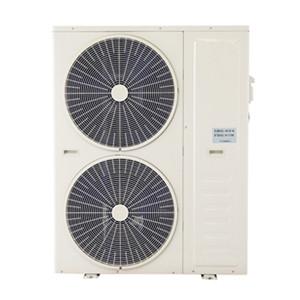What are the Advantages and Disadvantages of a Heat Pump?
If you find yourself interested in investing in a heat pump for your
home or business, you'll want to learn about the various pros and cons
associated with it. Here, we'll take a closer look at them - giving you a clear
view of each side to help you make your choice. A heat pump can be a fantastic
and wise investment. But first and foremost, make sure it fits you and fits in
your home.
What is a heat pump?
A heat pump is a system that moves (or pumps) heat from one place to
another by using a compressor and a circulating liquid or gas refrigerant
structure. In this way, heat is extracted from an external source and pumped
into the room. Pumping heat tends to use less electrical energy than typical
methods of converting electricity to heat. Additionally, during the summer
months, the cycle can be reversed and the unit will act as an air conditioner,
making it versatile.
Heat pumps are actually the most efficient alternatives to fuel, oil and
electrical systems during heating and cooling. They provide more heating and
cooling than the electrical energy used to run it. In fact, the efficiency can
be as high as 300%.
Advantages of heat pumps
1. Reduce maintenance
Compared to other heating systems on the market, heat pumps require
professional maintenance every 3-5 years. Homeowners can easily complete
certain inspections themselves. When you invest in a heat pump for your home or
office, you save on maintenance costs.
2. Reduce operating costs
Compared to combustion-based thermal systems, heat pumps are less
expensive to operate. These systems are energy efficient, allowing you to save
even more money over time. While the initial investment in a ground source heat
pump can be high, you can save a lot of money each year when you invest in an
environmentally friendly heat pump.
3. Carbon emissions
Over time, a heat pump will reduce your carbon footprint. It converts
energy into heat very efficiently compared to other heating systems. For example,
water-based heat pumps are at least 600% more efficient than other heating
systems on the market today.
4. Safety Features
Compared to combustion-based heating systems on the market, heat pumps
are very safe to own and operate.
(1) Modern AC heater unit
(2) Durability
(3) With the right type of maintenance, a heat pump can easily run for
more than five years. They provide a reliable and stable heat source.
5. Heating and cooling
A heat pump heats your home during cold periods and reverses the process
during warm periods. In hot and humid summer, it will work like an air
conditioner unit.
6. RHI Program
When you invest in a heat pump for your home or office, you are eligible
for discounts under the Renewable Heat Incentive (RHI) program. This program
helps homeowners and business owners install renewable heating systems in their
homes and offices.

Disadvantages of heat pumps
1. Installation is difficult
Compared to other thermal systems, heat pumps require professional
installation. When installing a ground source heat pump, you must understand
the movement of heat and the local geology. Professional installers are the
best choice for this type of system.
2. High upfront costs
The initial investment in a heat pump is much higher than investing in other
heating systems for your home or office. But in the long run, operating costs
translate into long-term savings. By investing in a heat pump, you will save on
energy bills and reduce your carbon footprint on the planet.
3. Sustainability issues
The sustainability of some liquids used in heat pumps is questionable.
They can sometimes cause environmental problems. This is why you need to always
use biodegradable liquids in your heat pump.
4. Cold Weather Conditions
Some heat pumps experience various problems in extremely cold weather
conditions. In this case, they may not function fully. Extreme cold weather can
damage some heat pump components. That's why you need to invest in the right
product based on the weather conditions in your area.
5. Not 100% carbon neutral
Heat pumps run on electricity. Therefore, these systems are not 100%
carbon neutral. Solar power is the best choice for heat pumps as it is an
efficient carbon-free model. Heat pumps should be used in conjunction with
solar panels for optimal environmental benefit.
6. Planning and Installation Licensing
Homeowners need permission from local authorities to install heat pumps
in certain parts of the UK. Wales and Northern Ireland, for example, require a
permit to install heat pumps. But in England and Scotland, installation may
depend on the location and size of the property.
In conclusion
Heat pumps have many advantages and some disadvantages that one must
consider and weigh when studying this form of heating. You should do a cost
forecast to see how the initial cash outlay will balance out over time, and
understand that disadvantages can turn into advantages and whether this form of
heating is right for you.





